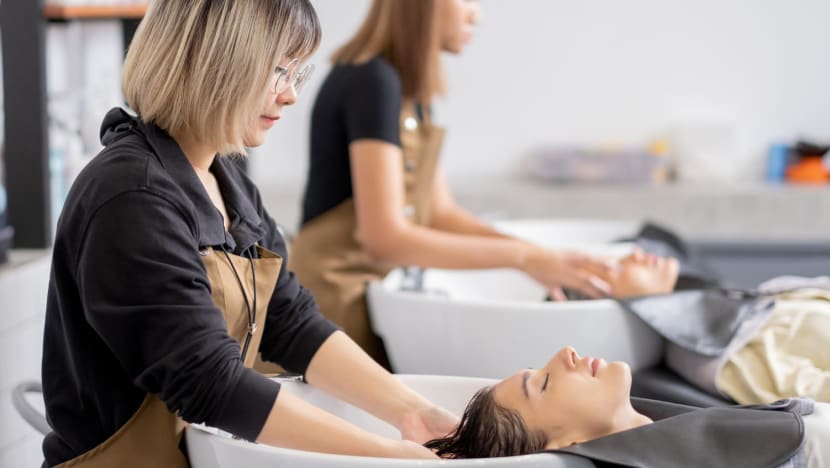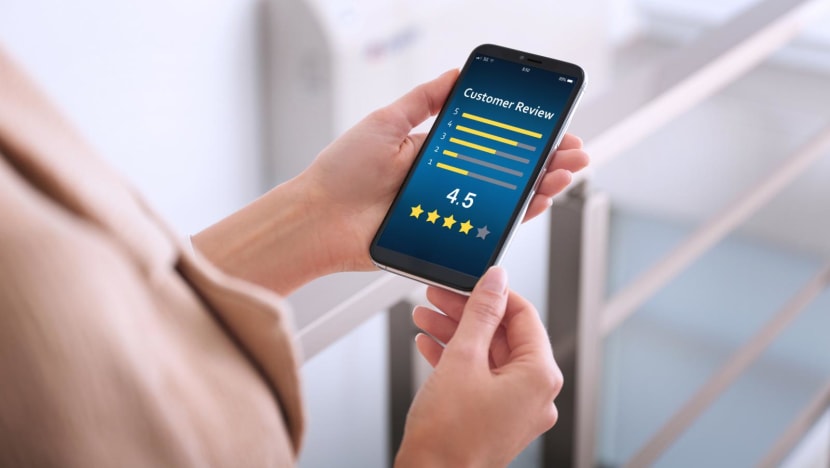Commentary: Why is hard-selling prepaid packages so common across Singapore beauty salons?
Pressure sales tactics leave a negative impression on customers, so why are they so common in Singapore’s beauty service industry? Beauty publisher Kristen Juliet Soh weighs in.

The beauty service industry in Singapore unfortunately has a poor reputation because of a few bad actors. (Photo: iStock/Narongrit Sritana)
SINGAPORE: The beauty service industry in Singapore unfortunately has a poor reputation because of a few bad actors. The latest of these is beauty salon chain Salon One, which was accused of engaging in pressure sales tactics at some of its outlets. The salon also received a warning for making false health claims over its treatment.
Singapore’s consumer watchdog, the Consumers Association of Singapore (CASE), received more than 1,400 complaints against the beauty industry in 2022, accounting for about 10 per cent of all the complaints it received.
Prepaid packages often feature in pressure sales tactics across beauty service providers. You’ve probably heard the horror stories or even experienced them yourself: A salesperson places the customer in a closed room and points out all their physical flaws, then offers a limited-time special promotion for treatments to address them.
A friend who went through this described the experience as unpleasant and suffocating. She felt trapped in the room until she agreed to buy more sessions. She ultimately gave in and purchased the smallest package.
Despite finding the treatment satisfactory, she never returned because the experience left a negative impression, and did not want to go through it again when her package ended. She would rather waste the money that she had spent.
The beauty salon lost a potential long-term customer and gained a negative reputation among my friend’s social circle. So why are hard-selling prepaid packages still a common practice in the industry?
PREPAID PACKAGES PROTECT SALONS
From a business perspective, prepaid packages protect the salons that sell them. Running a beauty salon requires significant capital, including rental, staffing, as well as purchase and maintenance of equipment.
Having customers commit to a package upfront allays these costs and helps businesses survive.
But the problem isn’t just about prepaid packages. After all, pressure selling isn’t exclusive to the beauty services industry. Direct marketers and financial planners are tagged with this reputation too, and those industries don’t offer prepaid packages.
This means that the larger issue lies in the sales culture of the company and the ethics of the salesperson.
Pressure selling is a result of incredibly high sales targets for staff, coupled with a culture that prioritises making a sale at all costs. This is when salespeople start behaving in a predatory way to meet their targets.
In fact, buying a prepaid package from a reputable beauty salon that you enjoy patronising can benefit you. It allows you to lock in prices for services you benefit from for an extended period, protecting you from inflation.
Many good beauty salons also offer birthday treats, tips and workshops to package holders so you won’t miss out on any good deals.
MAKING PREPAID PACKAGES WORK
Prepaid packages are something that can benefit both businesses and customers if all stakeholders play their part to make them work.
First, beauty salons should offer prepaid packages that come with a realistic expiry date.
A friend once bought a 100-session facial package that she had to use within 24 months. This means that she had to go for at least one session per week, which is neither realistic for any working adult’s schedule nor good for her skin.
Besides attaching sufficient time for the customer to complete her package, the salon should also allow the sharing of packages, as it doesn’t add any cost to the salon while allowing the customer to split the package cost with friends and family.
Lastly, beauty salons should provide comprehensive training to their staff to avoid pressure sales tactics. Salespeople should understand the customers’ beauty concerns while highlighting the value proposition of their services, aligning them with what the customers need.
To reiterate their commitment against pressure selling, beauty salons can also implement compliance clauses and establish channels for customers to lodge complaints, ensuring impartial action.
Establishing the right sales culture will undoubtedly benefit beauty salons in the long run. It is more sustainable to have happy, repeat customers rather than one-time customers who were coerced into making a purchase.
BECOMING A SMARTER CONSUMER

But it also takes two hands to clap. As customers, we can protect ourselves and be smarter about our purchases.
Always look for reviews before your appointment. This not only gives you a sense of the salon’s reputation but also tells you whether its services are effective and trustworthy.
If you genuinely enjoy the treatment, you can certainly make a purchase. Decide on a budget and stick to it - this way, you’ll be less likely to be swayed by promotions presented to you.
Don’t be afraid to say no. If you recognise hard-selling tactics from pushy salespeople, such as being overly friendly, creating a fear of missing out, or offering one-day-only promotions that sound too good to be true, do not be afraid of calling them out.
Remember that you have the right to decline an offer that doesn’t align with your needs or if you’re not ready to make a decision. Firmly but politely express your disinterest and stick to your decision.
However, if you have a fear of prepaid packages from beauty salons due to past bad experiences, you can consider going to salons that don’t offer any. Several salons in Singapore have a strict no-package concept, so customers don’t have to worry about committing to significant upfront payments for their beauty sessions.
Should you buy packages? Listen to Money Talks:
To strengthen customer protection, a “free look” or “cooling” period can be mandated by the government for the beauty industry. This can help reduce the chance of bad actors getting away with pressure selling and give consumers who find it hard to say no a chance to cancel their contract.
Insurance companies, for instance, grant consumers a 14-day free look period that allows them to review their policies. This helps consumers make more informed decisions and financial commitments.
The issue of pressure selling in the beauty service industry calls for the collective efforts of both businesses and customers. By working together, we can create an industry that thrives on trust, transparency and customer satisfaction, ensuring a positive experience for all involved.
Kristen Juliet Soh is the editorial director and co-founder of Daily Vanity.























